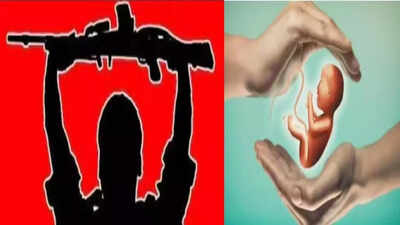ARTICLE AD BOX

RAIPUR: Shyamlal Korram had made peace with the thought that he would never be a father. In the Maoist strongholds of Bastar division, the path he had chosen left no room for parenthood.
As a cadre, he had undergone a vasectomy, a condition imposed on men before they were permitted to marry, reports Rashmi Drolia.It was a rule embedded in Maoist doctrine. For years, Shyamlal abided. Until he surrendered, married Sonmati - also an ex-rebel - & underwent a reverse vasectomy in 2014. Their kids now attend school. However, for those ex-cadres not able to have kids, Chhattisgarh has started a plan to offer IVF facility.Vasectomies performed by untrained hands in Naxal camps But the outcomes of reverse vasectomy have not been happy for many other ex-Maoists. Of the 26 surrendered Maoists who underwent reversal surgeries since 2007, only 10 couples have had children - 12 in total. The reversals, conducted under the state's rehabilitation scheme, often failed because of damage caused during the original vasectomies, typically performed in unsafe conditions by untrained hands in rebel camps.
Now, though, in an effort to close this gap in rehabilitation support, Chhattisgarh has begun formulating a plan to offer in-vitro fertilisation (IVF) to surrendered cadres who remain childless despite the reversal surgeries. The idea was born under the Naxalite Surrender, Victim Relief, and Rehabilitation Policy 2025.The initiative, according to officials TOI spoke to, is a proactive step by the state to address emotional and social challenges in post-surrender life - particularly among those who had hoped to start families.
Deputy CM and home minister Vijay Sharma told TOI: "In the Maoist movement, vasectomy was a prerequisite for marriage. We have seen that reversal surgeries offered to surrendered cadres didn't always work.
Many of these men surrendered in the hope of building families and leading ordinary lives. We are now exploring the possibility of offering IVF as an option to help them realise that goal." The finer contours of the proposal are still being worked out and have not been shared with surrendered cadres yet, he said.IG (Bastar range) P Sundarraj said the reversal policy began in 2004, with the first surgery performed in 2007. Since then, the state has included reversal surgery as a key component of its rehabilitation scheme. "What we observed is that despite surgeries, many remained childless. IVF is being considered as a medical alternative - not because people asked for it."



.png)
.png)
.png)
















 3 hours ago
3
3 hours ago
3








 English (US) ·
English (US) ·